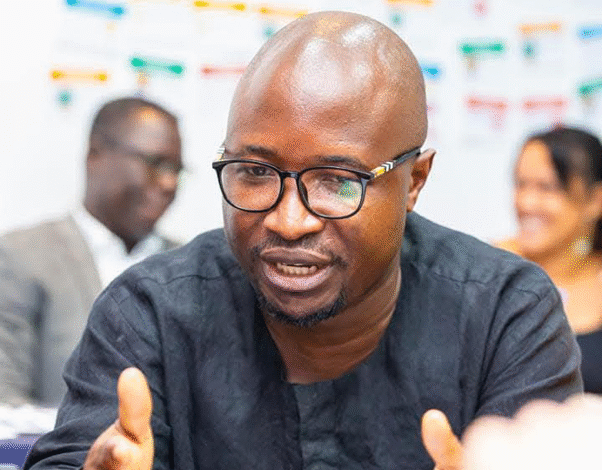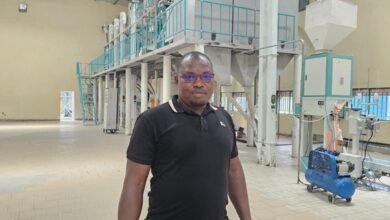African University Hubs : driving innovation, talent, and global competitiveness
Damien Mouzoun, CEO of Ayina Think Tank, explores how African university hubs are transforming higher education into engines of innovation and entrepreneurship. From leveraging tech hubs and creative economies to fostering regional collaboration and inclusive growth, Mouzoun highlights both the opportunities and challenges in retaining talent, enhancing R&D, and connecting African universities to the global stage.

What do you see as the main strengths of African university hubs in attracting and retaining talent ?
African university hubs, particularly the emerging tech hubs and creative economy initiatives, possess several unique strengths. Firstly, they offer a fertile ground for « bottom-of-the pyramid » innovation. Unlike traditional Western models, many African hubs are intrinsically driven by a direct response to specific local industry needs and critical societal challenges. This problem-solving ethos attracts talent eager to make a tangible impact.
Secondly, the « new production of knowledge » model, characterized by transdisciplinary, heterarchical, and boundary-spanning approaches, allows for more efficient generation of innovative solutions. This dynamic environment is incredibly appealing to young, agile minds. We see this in the success stories of tech hubs in Nigeria, South Africa, Kenya, and Uganda, which are not just generating new knowledge but also creating jobs, stimulating entrepreneurial ecosystems, and improving quality of life through technology.
Furthermore, the strong connections to wider policy agendas including gender equality, youth employment, poverty alleviation, and education mean that talent attracted to these hubs often finds a deeper sense of purpose and contribution beyond purely economic gains. The collaborative nature of creative entrepreneurship and the embeddedness within strong social networks also foster a supportive environment for talent growth.
What major challenges still hinder the development of these hubs and the internationalization of African universities ?
Despite these strengths, significant challenges persist. A primary concern is the « brain drain » phenomenon, where top academic talent is lost to institutions outside the continent. This is driven by factors such as poor working conditions, inadequate remuneration, limited research opportunities, and political instability. This exodus directly impacts academic quality and reduces innovation potential within African universities.
Another major challenge is the struggle of traditional universities with resource constraints and inadequate industry engagement. This creates a disconnect between academic output and market demands, making it harder to attract and retain talent that seeks practical application and economic opportunities. The institutional organization of disciplinary knowledge in many traditional universities also limits the kind of transdisciplinary innovation that industry demands.
Moreover, while there’s growing recognition, there’s still a perceived lack of prioritization of creative and cultural industries (CCIs) within national policies in many African countries. This can hinder investment and the development of supportive infrastructure crucial for these hubs. Finally, a lack of robust policies for Higher Education Science, Technology, and Innovation (HESTI), Research and Development (R&D), and Entrepreneurship, or limited capacity to implement existing ones, creates an unstable environment for sustained growth and international competitiveness.
How does Ayina support African universities in enhancing their global visibility and competitiveness ?
Ayina Think Tank plays a crucial role as an intermediary at the intersection of creative economies, policy, youth, and local development. We advocate for the central role of higher education, recognizing its unique potential to drive research and development, shift perspectives from heritage-based to innovation-driven creativity, and foster internationally recognized quality.
We work to bridge gaps by acting as a conduit between policymakers, industry, and educational institutions, ensuring that industry needs inform academic curricula and that research translates into real-world solutions.
At the same time, we advocate for policy reforms by supporting the development and implementation of robust HESTI, R&D, and Entrepreneurship policies, leveraging our expertise in policy analysis and dialogue, while emphasizing the importance of increasing R&D investment toward the African Union’s target of 1% of GDP.
We also facilitate collaborations by actively promoting partnerships between African universities, international research councils, and donor agencies, which not only provides additional resources but also enhances the global visibility of African institutions and talent.
Finally, we focus on capacity building by supporting initiatives that develop Africa’s workforce with demand-driven scientific and technological skills, making graduates more employable and entrepreneurial, including programs that offer scholarships, mentorship, and industrial attachments, particularly for women in STEM.
What initiatives are in place to facilitate intra-African student mobility and knowledge exchange ?
While the information provided doesn’t detail specific existing initiatives for intra-African student mobility that Ayina is directly involved in, our work and recommendations strongly support such endeavors. We recognize that strengthening continental and international collaborations through research and network building is crucial for knowledge sharing and creative economies development across Africa.
Key areas where we advocate for and contribute to initiatives include supporting and establishing more regional Centers of Excellence in higher education, similar to those funded by the African Development Bank (AfDB) in Mali, Uganda, and Rwanda, which serve as magnets for talent and facilitate student and faculty exchange.
We also promote the harmonization of qualifications by advocating for policy reforms that enable the mutual recognition of academic credentials across African nations, making it easier for students to pursue education and careers in different countries on the continent. In addition, we encourage the development and adoption of digital platforms that connect African researchers, students, and entrepreneurs, fostering virtual mobility and knowledge exchange while overcoming geographical barriers.
Finally, we support the creation of robust networking and mentorship programs that link students and emerging professionals with established experts and institutions across Africa, nurturing a strong pan-African academic community.
Which innovative technologies or strategies could transform African universities into true centers of excellence and innovation ?
Transforming African universities into true centers of excellence and innovation requires a multi-pronged approach that leverages both technology and strategic shifts. Embracing the opportunities of the Fourth Industrial Revolution, including Artificial Intelligence, Robotics, Internet of Things, 3D printing, and Big Data, is essential. This entails investing in advanced IT infrastructure and integrating these technologies into curricula, research, and practical applications, as exemplified by Carnegie Mellon University Africa in Rwanda, which has successfully driven economic growth through digital transformation.
Universities must continuously review and adapt their curricula to meet labor market demands, establishing strong links with the private sector through innovation incubation programs, tech hubs, and venture capital partnerships to ensure relevance and provide students with practical experience. Fostering vibrant entrepreneurial ecosystems within universities, through business development training, seed funding, and mentorship for startups, empowers graduates to become job creators rather than solely job seekers, as demonstrated by Rwanda’s Skills and Business Development Programme supported by the AfDB.
Promoting collaboration between academia, industry, and government through the “triple helix” model creates a synergistic environment for innovation, where research informs policy and industry provides practical challenges and resources. Developing accessible and inclusive infrastructure for creative economies in both urban and rural contexts, while supporting privately owned tech hubs with institutional and capacity-building resources, ensures that educational and entrepreneurial opportunities are open to all, reflecting the diversity of each nation.
Doubling efforts to meet the African Union’s target of 1% of GDP investment in R&D is critical, as such investment directly enhances innovation, skills development, employment, and productivity. Partnering with international STI research councils and donor agencies can further amplify this impact. Additionally, adopting gender-responsive strategies to expand access for girls and women in STI/STEM, through executive programs, graduate scholarships, mentoring, and community initiatives addressing local challenges, unlocks a vast pool of talent and drives innovation across the continent.






